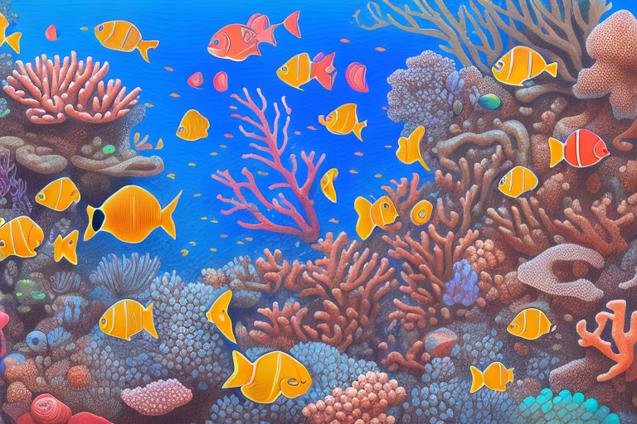
Discover how tourism can impact marine ecosystems and ways to practice responsible tourism while sailing and traveling to protect and preserve the environment for future generations.
The Impact of Tourism on Marine Ecosystems
As we embark on our sailing adventures, it’s essential to recognize the impact our actions have on the marine ecosystems we encounter. Responsible tourism is a crucial aspect of our journey, and understanding the effects of tourism on marine life is the first step in minimizing our footprint. In this article, we will explore the various ways tourism can impact marine ecosystems and discuss how we can be more environmentally responsible travelers.
Table of Contents
- Introduction
- Direct Impacts of Tourism on Marine Ecosystems
- Indirect Impacts of Tourism on Marine Ecosystems
- How to Be a Responsible Tourist
- Conclusion
Introduction
Tourism is one of the fastest-growing industries globally, with millions of people traveling to coastal and marine destinations each year. While tourism can bring economic benefits to local communities, it can also have significant negative impacts on marine ecosystems. As sailors and travelers, it’s our responsibility to understand these impacts and take steps to minimize our footprint on the environment.
Direct Impacts of Tourism on Marine Ecosystems
There are several direct ways that tourism can impact marine ecosystems, including boat traffic, recreational activities, and marine debris.
Boat Traffic
Boat traffic is a significant source of disturbance for marine life. The noise generated by boat engines can disrupt the behavior and communication of marine animals, particularly cetaceans such as whales and dolphins. Boat traffic can also lead to physical damage to marine habitats, such as seagrass beds and coral reefs, through anchoring or grounding.
Recreational Activities
Recreational activities, such as snorkeling, diving, and fishing, can also have negative impacts on marine ecosystems. These activities can lead to physical damage to marine habitats and the disturbance of marine animals. For example, divers and snorkelers may accidentally break coral or disturb nesting sites, while fishing can lead to overfishing and the accidental capture of non-target species (bycatch).
Marine Debris
Tourism can contribute to the accumulation of marine debris, such as plastic waste, in the ocean. Marine debris can have severe consequences for marine life, including entanglement, ingestion, and habitat degradation. Plastic waste, in particular, can break down into microplastics, which can be ingested by marine animals and enter the food chain, posing a threat to both marine life and human health.
Indirect Impacts of Tourism on Marine Ecosystems
In addition to the direct impacts, tourism can also have indirect effects on marine ecosystems through coastal development and climate change.
Coastal Development
Coastal development to accommodate tourism infrastructure, such as hotels, marinas, and cruise ship ports, can lead to the destruction of coastal habitats, such as mangroves, seagrass beds, and coral reefs. These habitats are essential for the survival of many marine species and provide essential ecosystem services, such as coastal protection and carbon sequestration.
Climate Change
Tourism contributes to climate change through the emission of greenhouse gases from transportation, accommodation, and other tourism-related activities. Climate change can have severe consequences for marine ecosystems, including ocean warming, acidification, and sea-level rise. These changes can lead to the loss of marine habitats, such as coral reefs, and the decline of marine species, such as fish and turtles.
How to Be a Responsible Tourist
As sailors and travelers, we have a responsibility to minimize our impact on marine ecosystems. Here are some ways we can practice responsible tourism:
Choose Sustainable Operators
When participating in tourism activities, such as boat tours, diving, or fishing, choose operators that prioritize sustainability and adhere to best practices for environmental protection. Look for certifications from organizations such as the Marine Stewardship Council (MSC) for sustainable fishing or the Green Fins initiative for environmentally responsible diving and snorkeling.
Follow Guidelines and Regulations
Adhere to guidelines and regulations designed to protect marine ecosystems, such as maintaining a safe distance from marine animals, not touching or disturbing coral, and following fishing regulations. Be aware of marine protected areas (MPAs) and respect their rules and restrictions.
Reduce Waste and Pollution
Minimize your waste and pollution by using reusable items, such as water bottles and bags, and disposing of waste properly. Be mindful of the products you use, such as sunscreen, and opt for reef-safe alternatives. When sailing, use eco-friendly cleaning products and avoid discharging waste into the ocean.
Support Conservation Efforts
Support local conservation efforts by volunteering, donating, or participating in citizen science projects. Educate yourself about the marine ecosystems you visit and share your knowledge with others to raise awareness about the importance of marine conservation.
Conclusion
As we set sail to explore the world with our families, it’s crucial to recognize the impact our actions have on the marine ecosystems we encounter. By understanding the effects of tourism on marine life and practicing responsible tourism, we can minimize our footprint on the environment and contribute to the preservation of these precious ecosystems for future generations.